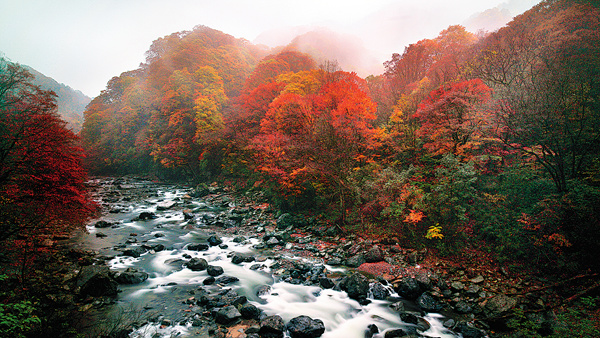Natural attraction

Mount Guangwu, which boasts a forest spanning 680 square kilometers, displays a spectrum of color. [Photo provided to China Daily]
"I told my mother that the poem was not news. It was a poetic way of comparing the autumn leaves to a burning fire. She breathed a sigh of relief," he says.
To refute the rumor, the paper had to publish photos of the mountain and its autumnal coloring with the caption: "With red autumn leaves, Mount Guangwu receives more than 30,000 visitors in a single day."
The photos might have poured water on the rumor, but fanned the flames of interest among tourists. In the following days and weeks, they came from Chongqing municipality, Chengdu, Guizhou province and the Guangxi Zhuang autonomous region, jamming roads leading to the mountain, Chen says.
With 95 percent of its land being mountainous, Nanjiang was written about by Li Shangyin, a poet during the late Tang Dynasty (618-907).
In the middle of the ninth century, Li penned his famous poem To My Family in the North on a Rainy Night in Nanjiang on his way home to Shaanxi province.
After an overnight rain, the dirt-covered mountain roads in Nanjiang were inaccessible and Li was stranded for days. He lamented in the poem to his family: "You ask me when I can come back but I don't know. The pools in Nanjiang with autumn rain overflow."

